Ancient Egypt's intellectual brilliance and creativity laid the foundation for many modern advancements. Their inventions in language, mathematics, medicine, and architecture continue to influence us today. From creating the first system of writing to designing the Great Pyramids, the Egyptians were pioneers in innovation. Their legacy includes significant contributions to astronomy, trade, and cosmetics, showcasing their profound intellect and imagination. Their work remains an enduring inspiration, impacting today's technologies and cultural practices.

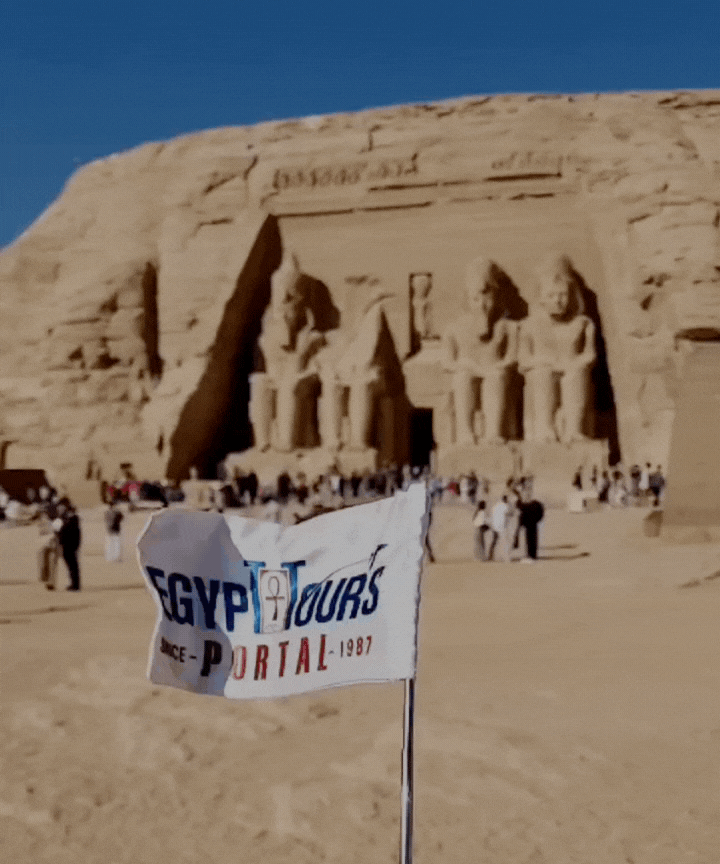
The ancient Egyptians were blessed with an amazing intellect and a magical imagination that created ancient Egyptian inventions that were used during their time to experiment with many ideas in order to gain further understanding of the universe they occupied. They invented ways to elevate & document their lives and many useful gadgets that spread to other civilizations.
They made many amazing contributions towards language, numeracy, and science, which are gifts that keep on giving. The Ancient greeks regarded Egypt as the land of mystery and wisdom, and the Ancient Roman was fascinated with Egyptian architecture and art. The ancient Egyptian civilization was the first to spin the wheel of innovation, creativity, setting the bar high for all other civilizations. Here is a list of Egyptian inventions and discoveries:
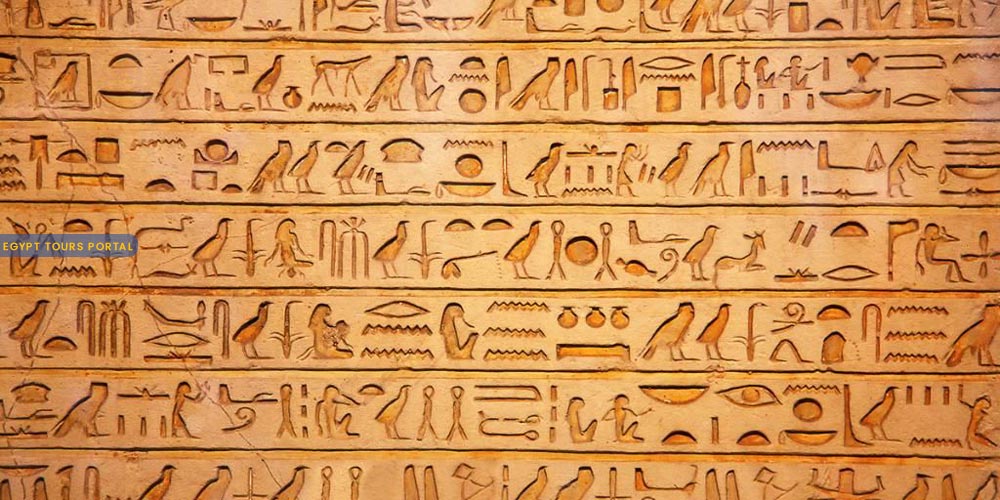
Ancient Egyptian language is one of the most important explorations of ancient Egyptian inventions, they created the art of writing to express their ideas, at first the Egyptians used pictures and pictographic signs but eventually after a couple of thousands of years, they invented 24 alphabets (Where Each Symbol Represent a Sound Rather than a Whole Word), In 3200 B.C.E, This caught on with Egypt’s neighbors the Phoenicians who made their own alphabet which spread through the near east and Greece.
This acted as the cause and foundation for alphabets all over the ancient world and influenced speech and writing. All of this information came into light because of the discovery of the Rosetta stone in 1799 A.D. The ancient Egyptians were the first people to move away from stone tablets and try writing on papyrus using ink in 3000 B.C.E. They were able to use their imagination to create immortal literature that reflected their emotions, legends, myths, adventures, and thoughts about their ancient Egyptian religion like "The Pyramid Texts", "The Coffin Texts", and "The Book of the Dead". They had many languages over the years, which are:
Explore the remarkable texts of the ancient Egyptian civilization
Read More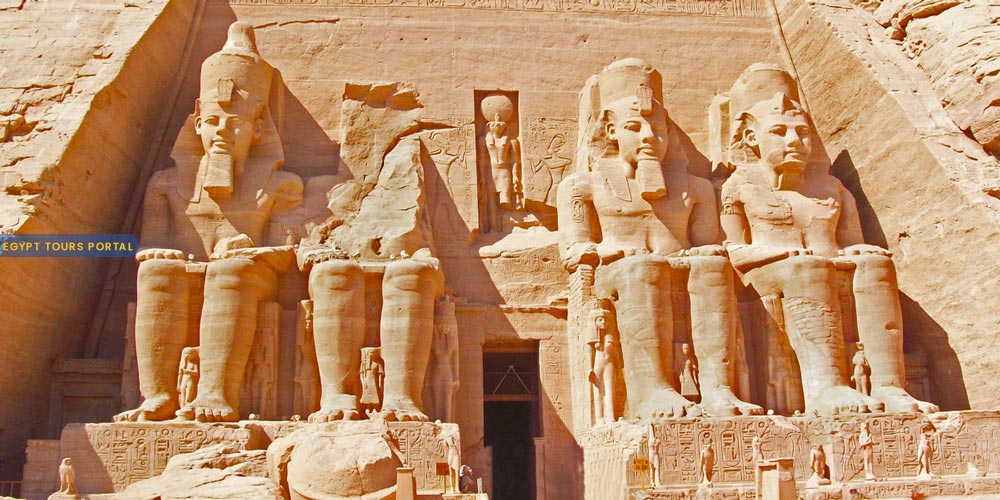
The ancient Egyptians were very gifted when it came to mathematics, they were very efficient in addition, subtraction, multiplication, division and were the first to invent basic and complex fractions as traces were found on a papyrus written in 1650 B.C.E. There also the earliest confirmed use of a decimal system in 3100 B.C.E. Their mathematics was more practical than what the Greeks or Mesopotamians had. The earliest records of geometry came from Egypt, as they had various techniques to perform these calculations, which we still use today in modern-day computing.
The ancient Egyptians also had a talent for creating some of the most inspiring structures the world has ever seen through using their advanced knowledge of architecture and the science behind triangles, squares, quadrangles, and other shapes for measuring the land. They were able to build amazing monuments like the majestic three Giza Pyramids, the Great Sphinx, the whole city of Karnak, and a huge number of well-designed and crafted monuments that stood the test of time.
This encouraged other civilizations to take the same path and create marvelous monuments like the Greeks. The Ancient Egyptians were the first to invent custom-made bricks of the same size and cement, use copper plumbing in 3000 B.C.E, use precise surveying in 2700 B.C.E to build their breathtaking structures, and the Astronomical calendar in 2400 B.C.E, which we still use today for its accurate regularity.
Discover the incredible architecture of the ancient Egyptian civilization
Read More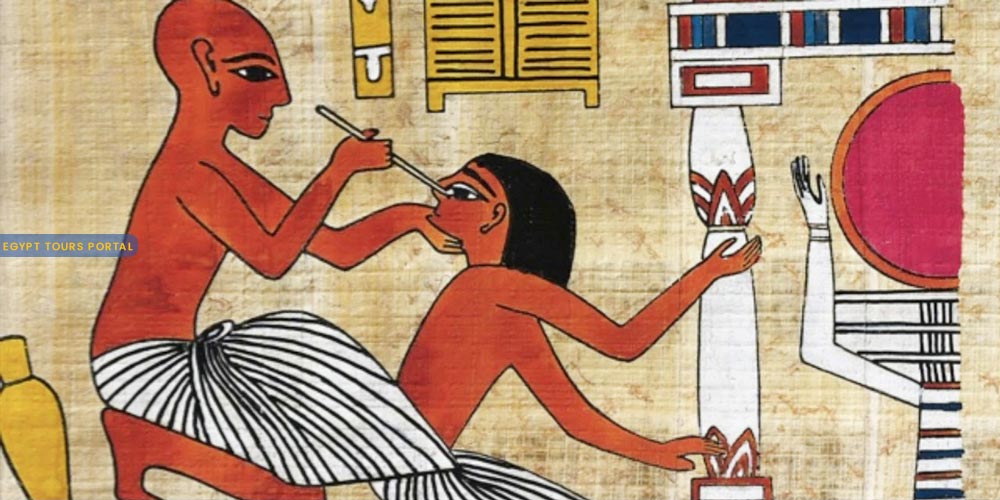
They invested a lot of their time in understanding the art of human anatomy, which started in 3000 B.C.E. Ancient Egyptian medicine had an excellent reputation in the ancient world, as many doctors were able to stitch up wounds, repair broken bones, or even amputate limbs. They used opium as a painkiller, and foods like onions and garlic were consumed daily because of their health benefits.
They were the first to create and use a toothbrush and toothpaste, as they cared deeply about their dental hygiene. They used many herbs to treat wounds and performed very complex surgeries using several bronze surgical tools, as the world’s earliest known mention of the word surgery was in 2700 B.C.E. in ancient papyrus. For all these reasons, Egyptian doctors were very famous all across the Mediterranean Sea region.
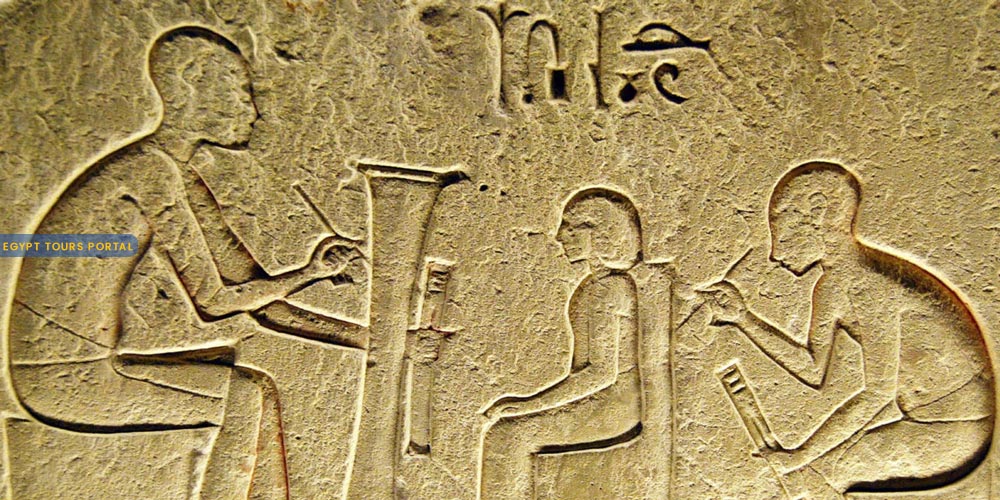
Ancient Egypt made groundbreaking contributions to philosophy and history that laid the foundation for many modern concepts in governance, law, and ethics. Central to their belief system was the principle of Ma'at, representing truth, justice, and cosmic order, which guided their legal system and societal structure.
The Egyptians were pioneers in record-keeping and formal education, developing one of the earliest known writing systems through hieroglyphs, which they used to document their history, religious beliefs, and legal practices. They established one of the first organized legal systems, grounded in Ma'at, ensuring fairness and justice.
Their rulers, known as Pharaohs, were considered divine beings, responsible for upholding this cosmic balance. Ancient Egyptian politics and its commitment to law, governance, and philosophy deeply influenced future civilizations, especially Greece and Rome, which adopted and adapted many Egyptian ideas.
Their extensive historical records, inscribed on monuments, tombs, and papyri, remain some of the most significant early examples of history being chronicled for future generations. These innovations in philosophy and history have had a lasting impact on global thought and governance, shaping the systems we know today.
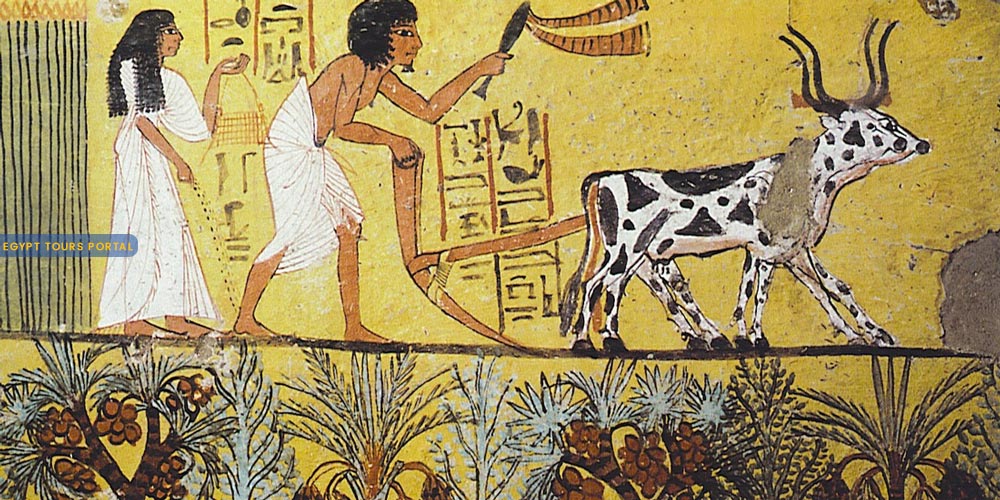
The ancient Egyptians were the first to use boats in domestic and foreign trade and commerce. Egypt was a hot spot for trade in the Mediterranean as they exported and imported many goods like cattle, wine from Asia, precious stones from Persia, and copper from Senia. They were able to achieve great trade relations with Sudan, Phoenicia, Crete, and Persia.
They used the advanced knowledge of aerodynamics and shipbuilding techniques to be the first to develop their own navy. They also created the earliest known geologic and topographic map in 1160 B.C.E. They were the first to explore and invest in the full potentials of agriculture and farming as they observed the cycles of the Nile which led to the creation of the oldest irrigation systems and the use of sickle blades and plows driven by oxen to loosen the dry soil.
Discover the astonishing trade and commerce of the ancient Egyptian civilization
Read More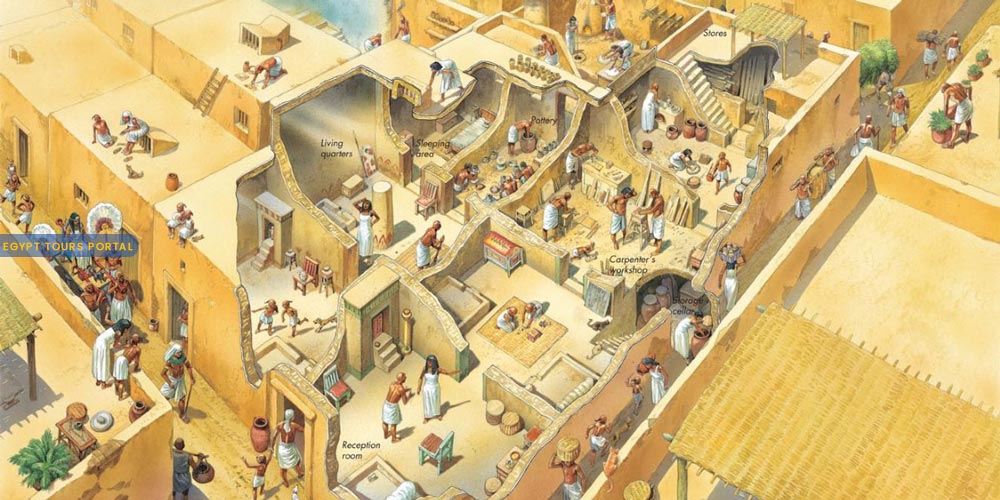
The Egyptians were true artists as they were able to mix science with beauty and create something spectacular. They were the first people to end their independence on wood and stone and move to metal. They were pioneers in metallurgy as they made bronze in 3300 B.C.E by fusing copper and tin and made many tools from it that were used in various fields.
They built all the hunting tools and ancient Egyptian weapons like knives, arrows, heads, fishing hooks, weapons such as swords, helmets, shields, and many carpentry tools like saws, axes, and chisels from bronze. They were the first to invent the pottery wheel, which allowed the mass production of many vases and crockery. In 3500 B.C.E, The Egyptians were able to create glass in 1500 B.C.E, by heating this material using silica sand and soda to the highest possible degrees.
Ancient Egyptians were incredible painters as they created many beautiful paintings and drawings on temple walls that stood the test of time. They were also the first to invent and use wigs, stylish jewelry, and cosmetics, all made from natural resources. They also created the world’s first board game in 2900 B.C.E. called Senet that inspired many future games like chess.
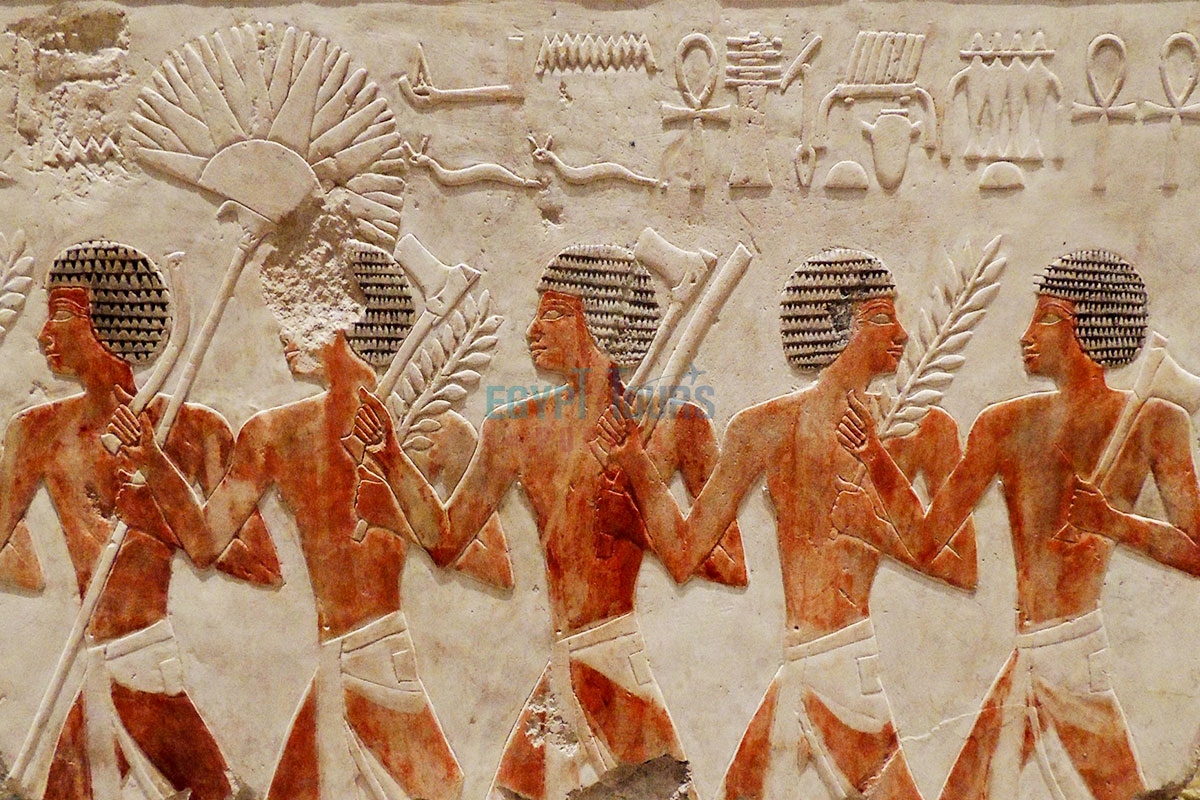
Ancient Egyptians established some of the earliest known organized policing and military systems, driven by the need to protect assets like grain stores, water sources, and royal tombs. Police forces were in place as early as the Fourth Dynasty (2600 BC), with officials known as "Judge Commandants of the Police." Their duties included law enforcement and the management of local security. Egyptian police used trained police dogs and even war dogs as early as 4000 BC, likely to guard valuable goods and assist in crowd control during public events and festivals.
The ancient Egyptian police and military were among the first to develop a formal hierarchy, with specialized ranks and structured divisions by the Middle Kingdom (2055–1650 BC). They mastered fortification tactics, as seen in the fortress of Buhen, where the world’s oldest drawbridge and battlements were built. Innovations such as moving siege towers and battering rams allowed them to gain strategic advantages in warfare.
Egyptian chariots, though originally introduced by the Hyksos around 1600 BC, were adapted and refined by the Egyptians to play a crucial role in their military strategy, enabling swift and powerful strikes during battles. The invention of symbolic encryption for messages, as found in the tomb of Khnumhotep II (1900 BC), highlights their early understanding of intelligence and secure communication.

Ancient Egypt’s technological innovations extended from construction techniques to everyday tools and utilities, showcasing a highly resourceful civilization. Simple machines like levers, ramps, and pulleys were indispensable to monumental construction, enabling laborers to move massive stones weighing over 80 tons.
The Great Pyramid of Giza, built around 2560 BC, stands as a testament to their engineering prowess. The Egyptians also pioneered boat hulls made from wooden planks lashed together with ropes, marking one of the earliest uses of hulls in history, while sails made of linen allowed them to traverse the Nile and even venture into the Red Sea as early as 3300 BC.
In the home, the Egyptians used lime mortar as an adhesive in building structures, a durable material still in use today. Their papyrus paper, manufactured around 3000 BC, revolutionized record-keeping, leading to the first documented administrative logs, such as the Diary of Merer from the reign of Pharaoh Khufu. In metalwork, they utilized bronze and copper alloys for tools, enabling intricate crafts and improvements in construction.
Medical technology was equally advanced, with tools like scalpels and dental drills crafted from metal for surgical procedures, as documented in the Edwin Smith Papyrus. Egypt’s water clock, designed around 1417–1379 BC during Amenhotep III’s reign, was another sophisticated invention that allowed accurate time-keeping even at night, a critical tool for religious rituals and agriculture.
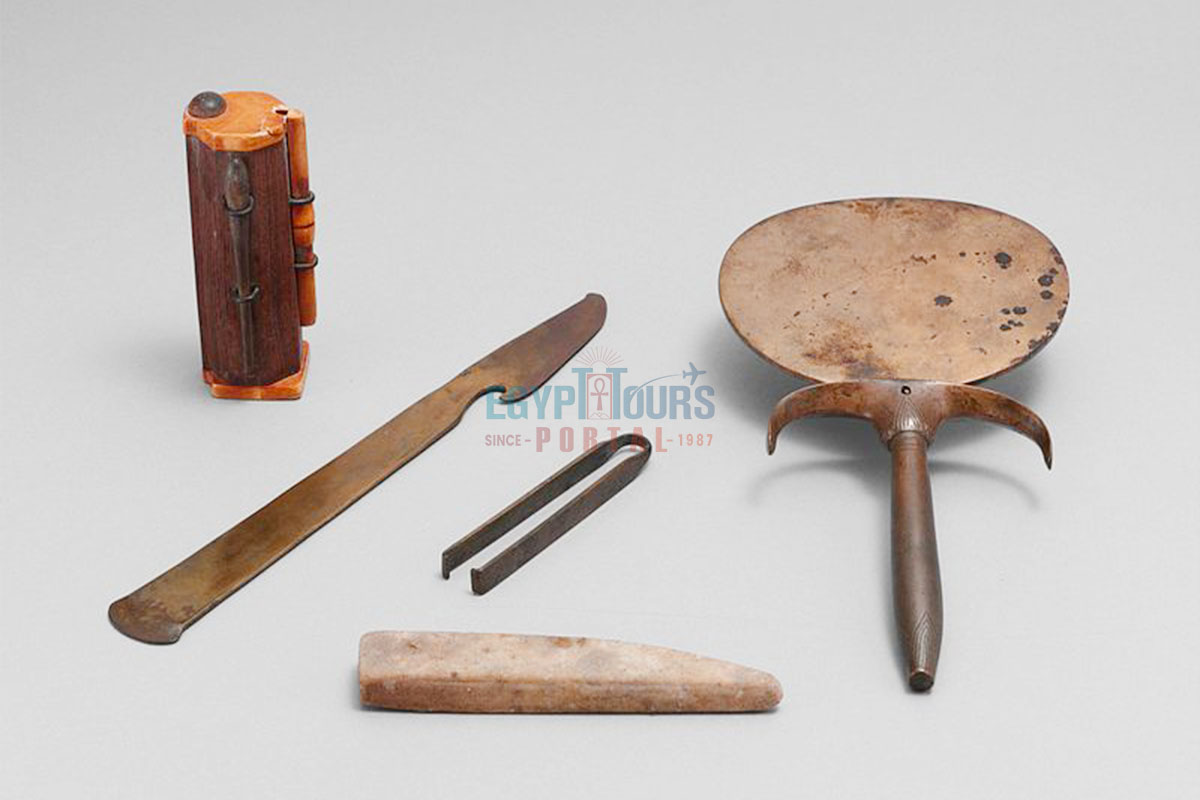
Makeup and cosmetics in ancient Egypt were both practical and spiritual, serving as protection from harsh sunlight and embodying religious significance. Egyptians were among the first to use kohl eyeliner, made from galena and other minerals, as early as 4000 BC. This dark eyeliner protected their eyes from the intense sunlight and, according to religious beliefs, from the “evil eye.” Malachite (a green mineral) was crushed and used as eyeshadow, which they believed had protective powers, particularly for women and children.
The Egyptians developed lip colors by mixing red ochre with fats, producing some of the world’s earliest lipsticks and rouges. They also pioneered perfume from essential oils, resins, and floral extracts, using it for personal and religious purposes. Scents like frankincense and myrrh held religious significance, believed to purify the soul. Henna was widely used to dye hair and nails, a practice associated with beauty, health, and fertility.
For skin care, they employed natural moisturizers such as castor, olive, and sesame oils to protect their skin from the arid climate. Additionally, hair gel made from plant oils and animal fats helped maintain elaborate hairstyles, as evidenced by mummies dating back over 2,300 years, indicating that beauty and grooming were integral parts of Egyptian identity.
Witness the amazing clothing, Makeup, and cosmetics in ancient Egypt
Read More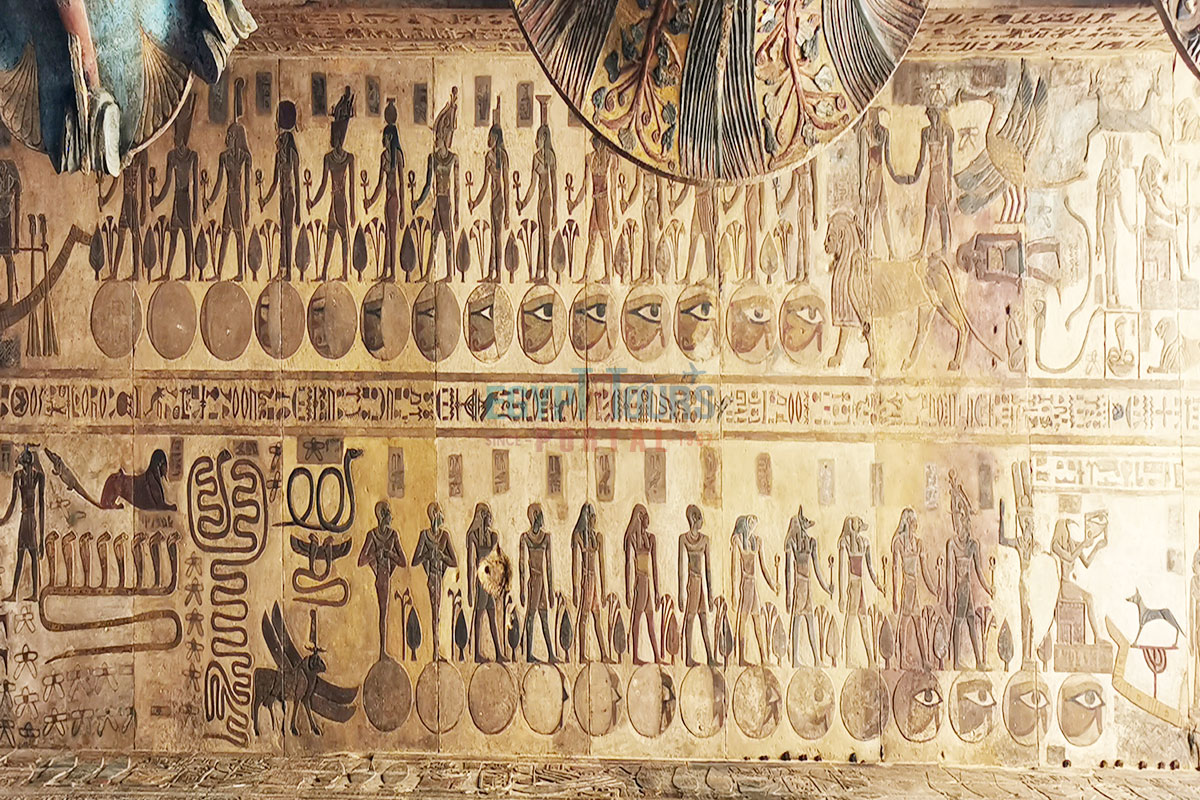
Ancient Egyptian Astronomy was deeply intertwined with religious beliefs and agricultural cycles in ancient Egypt. The Egyptians created a 365-day solar calendar around 3000 BC, one of the earliest known attempts at a precise solar calendar. They divided the year into 12 months of 30 days each, with an additional five “epagomenal” days to account for the year’s full cycle. This calendar was essential for predicting the Nile’s annual flooding, which was crucial for agriculture.
They observed the heliacal rising of Sirius, the “dog star,” marking the start of the flood season, and used it to organize their agricultural and religious activities. Egyptians developed sophisticated star clocks and decan clocks to measure night hours by tracking specific constellations. This method was vital for temple rituals and aligning structures with celestial bodies. The Egyptians invented merkhet, a tool that worked with a plumb line to align buildings and temples precisely with specific stars, a practice seen in the Great Pyramid’s alignment with the cardinal directions.
The sundial and water clock were used to track time, with the latter allowing for timekeeping at night. These innovations laid the foundation for later developments in timekeeping, and the Egyptian calendar influenced future civilizations, including the Greeks and Romans, who adopted similar solar-based calendars.
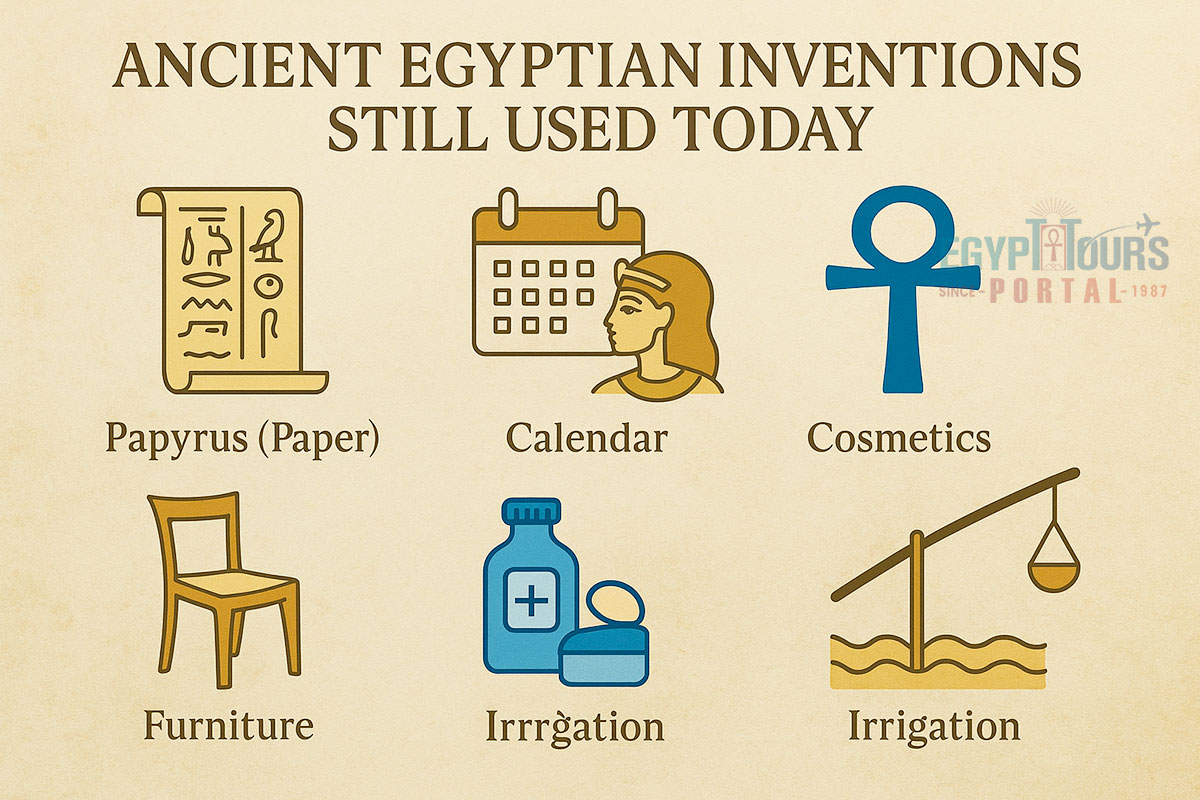
Many of ancient Egypt’s innovations remain in use today or have inspired modern developments:
These Egyptian innovations demonstrate how their approaches to daily life, health, and beauty laid the groundwork for countless modern conveniences.
The ancient Egyptians had a rich environment, vivid imagination, and highly advanced minds, which enabled them to cultivate a great civilization based on innovation and excellence in every single aspect of society, as seen across:
Games and Sports in Ancient Egypt: Evidence of bowling, hockey, and gymnastics; ancient Egyptians also practiced weightlifting and tug-of-war.
Ancient Egypt was the envy of all its neighbors as it created a glorious legacy by giving birth to an infinite number of inventions and ideas, which still play a role in our lives to the present day. So it will be amazing to cast your eyes on the breathtaking temples and tombs of the ancient Egyptian during your Egypt tour or Nile river cruise so don’t miss the opportunity to discover the hidden world of Egyptian mythology, temples, tombs, and many more across the immortal cities of Cairo, Luxor, Aswan, and Alexandria.
Private 4 Days Cairo Tour Packages for British Travelers 4 days Cairo Egypt Tour pac...
Tour Location: Cairo – Giza...
5 Days Cairo and Alexandria Tour Package For British Travelers 5 days Cairo and Alex...
Tour Location: Cairo/Giza/Alexandria...
6 Days Cairo, Luxor & Aswan Tour Package For British Travelers 6 days Cairo, Lux...
Tour Location: Cairo/Giza/Aswan/Luxor...
Amazing 7 Days Cairo and Hurghada Holiday for British Travelers 7 Days Cairo & H...
Tour Location: Cairo – Giza – Hurgh...
The entire country of Egypt deserve to be explored with its every heavenly detail but there are places that must be seen before any other such as the breathtaking Hurghada's red sea, The wonders of Cairo the pyramids of Giza, the great sphinx, the Egyptian Museum, Khan El Khalili Bazaar, the wonders of Luxor like Valley of the Kings, Karnak & Hatshepsut temple and the wonders of Aswan such as Abu Simbel temples, Philea temple, Unfinished obelisk and The Wonders of Alexandria like Qaitbat Citadel, Pompey's Pillar and Alexandria Library. Read more about the best places to visit in Egypt.
If you want to apply for a Visa On Arrival that lasts for 30 days then you should be one of the eligible countries, have a valid passport with at least 6 months remaining and pay 25$ USD in cash, as for the E-Visa for 30 day you should have a valid passport for at least 8 months, complete the online application, pay the e-visa fee then print the e-visa to later be presented to the airport border guard. You could also be one of the lucky ones who can obtain a free visa for 90 days. Read more about Egypt travel visa.
Egypt has a variety of delicious cuisines but we recommend “Ful & Ta’meya (Fava Beans and Falafel)”, Mulukhiya, “Koshary”, a traditional Egyptian pasta dish, and Kebab & Kofta, the Egyptian traditional meat dish.
The best time to travel to Egypt is during the winter from September to April as the climate becomes a little tropical accompanied by a magical atmosphere of warm weather with a winter breeze. You will be notified in the week of your trip if the Climate is unsafe and if any changes have been made.
You should pack everything you could ever need in a small bag so you could move easily between your destinations.
We have been creating the finest vacations for more than 20 years around the most majestic destinations in Egypt. Our staff consists of the best operators, guides and drivers who dedicate all of their time & effort to make you have the perfect vacation. All of our tours are customized by Travel, Financial & Time consultants to fit your every possible need during your vacation. It doesn't go without saying that your safety and comfort are our main priority and all of our resources will be directed to provide the finest atmosphere until you return home.
You will feel safe in Egypt as the current atmosphere of the country is quite peaceful after the government took powerful measures like restructuring the entire tourist police to include all the important and tourist attractions in Egypt. Read more about is it safe to travel to Egypt.
Wear whatever feels right and comfortable. It is advised to wear something light and comfortable footwear like a closed-toe shoe to sustain the terrain of Egypt. Put on sun block during your time in Egypt in the summer to protect yourself from the sun.
The best activity is by far boarding a Nile Cruise between Luxor and Aswan or Vise Versa. Witness the beauty of Egypt from a hot balloon or a plane and try all the delicious Egyptian cuisines and drinks plus shopping in old Cairo. Explore the allure and wonders of the red sea in the magical city resorts of Egypt like Hurghada and many more by diving and snorkeling in the marine life or Hurghada. Behold the mesmerizing western desert by a safari trip under the heavenly Egyptian skies.
There are a lot of public holidays in Egypt too many to count either religious or nation, the most important festivals are the holy month of Ramadan which ends with Eid Al Fitr, Christmas and new years eve. Read more about festivals & publich holidays in Egypt.
Egypt is considered to be one of the most liberal Islamic countries but it has become a little bit conservative in the last couple of decades so it is advised to avoid showing your chest, shoulders or legs below the knees.
Arabic is the official language and Most Egyptians, who live in the cities, speak or understand English or at least some English words or phrases. Fewer Egyptians can speak French, Italian, Spanish, and German. Professional tour guides, who work in the tourism sector, are equipped to handle visitors who cannot speak Arabic and they will speak enough English and other languages to fulfill the needs of all our clients.
The fastest way is a car, of course, a taxi. If you are in Cairo ride a white taxi to move faster or you could board the fastest way of transportation in Egypt metro if the roads are in rush hour.
The temperature in Egypt ranges from 37c to 14 c. Summer in Egypt is somehow hot but sometimes it becomes cold at night and winter is cool and mild. The average of low temperatures vary from 9.5 °C in the wintertime to 23 °C in the summertime and the average high temperatures vary from 17 °C in the wintertime to 32 °C in the summertime. The temperature is moderate all along the coasts.
It is the home of everything a traveler might be looking for from amazing historical sites dating to more than 4000 years to enchanting city resorts & beaches. You will live the vacation you deserve as Egypt has everything you could possibly imagine.









